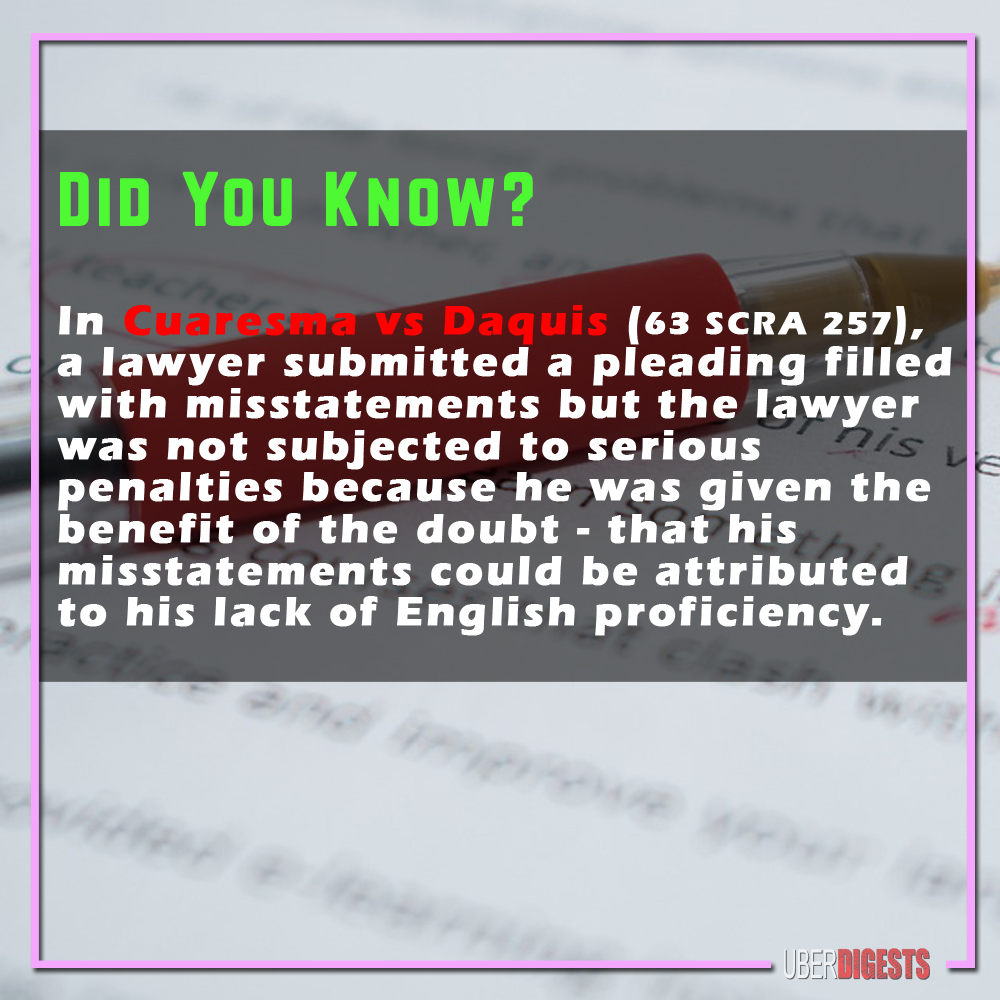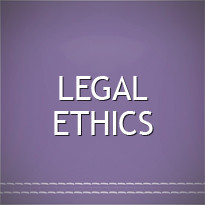Can't share this digest on Facebook? Here's why.
G.R. No. L-35113 – 159 Phil. 856 – 63 SCRA 257 – Legal Ethics – A lawyer owes candor to the court
An order to demolish the property where Eugenio Cuaresma was staying was issued by a trial judge pursuant to a civil case filed by Marcelo Daquis. Cuaresma’s lawyer, Atty. Macario Directo, filed a petition for certiorari before the Supreme Court where he alleged that they had no knowledge of the said civil case hence the order of demolition is unjust. The Supreme Court however later found out that Cuaresma and his lawyer in fact knew of the existence of said civil case. The Supreme Court then directed Directo to show cause why he should not be disciplined.
In his explanation, Directo stated that what he meant was that he and his client belatedly learned of the civil case; that had there been a mistake committed, “it had been an honest one, and would say in all sincerity that there was no deliberate attempt and intent on his part of misleading this Honorable Court, honestly and totally unaware of any false allegation in the petition.”
ISSUE: Whether or not Directo should be subject to disciplinary actions.
HELD: No. But he was reprimanded by the Supreme Court. The Supreme Court gave Directo the benefit of the doubt although it did say that Directo’s reasoning could very well be just an afterthought. The Supreme Court also stated that Directo is presumed to be in good faith especially so that the misstatements in his petition could be attributed either to his carelessness or his lack of English proficiency. The Supreme Court admonished Directo to prepare pleadings carefully in the future so that the least doubt as to his intellectual honesty cannot be entertained. Every member of the bar should realize that candor in the dealings with the Court is of the very essence of honorable membership in the profession.



